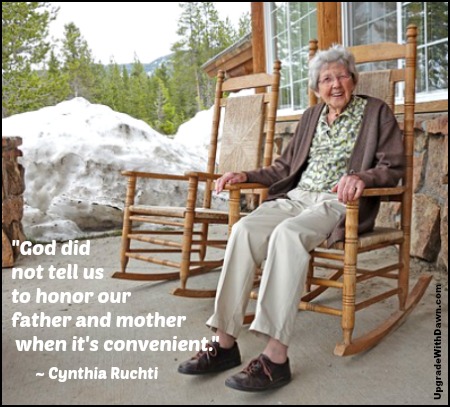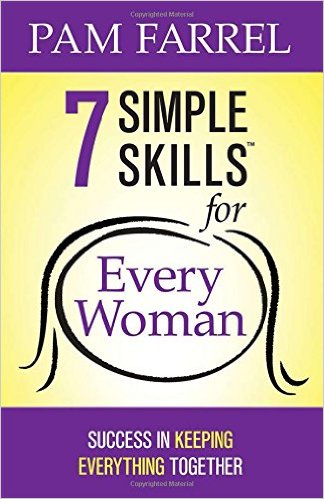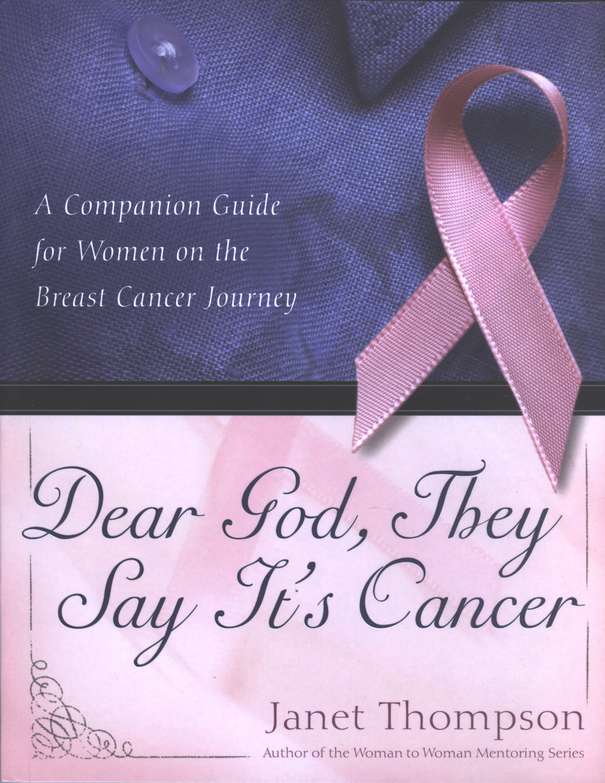Holiday Hope for Aging Parents
Including aging parents in our holiday plans can take some extra thought, but as Cynthia Ruchti shows us in this Holiday UPGRADE, it's so worth the time and effort!
"Aging parents—and caring for them—can upgrade the holidays for us," Cynthia says. "And it’s about time."
it’s about time."
I (Dawn) like that. I like any time we can upgrade the holidays. We do it with decorations and events, but what about the people in our lives? How do we give a meaningful dose of holiday hope to our aging parents?
Cynthia continues . . .
In many families, Grandma and Grandpa once provided the setting for all the holiday memory-making.
Theirs was the groaning dining room table with a feast and decorations that revealed days’ worth of cooking, baking, preparation.
Theirs was the backyard hill for sledding and snow forts.
The presents under the Christmas tree might have crowded against each other with the grandparents’ generosity and homemade gifts.
But now, a hospital bed might occupy the spot a glittering tree once claimed.
The living room of the grandparents’ home is “decorated” with the trappings of ill health and aging—walkers, commodes, lift chairs. The sounds of Christmas music in the background competes with the sound of the oxygen machine.
Or Grandma and Grandpa are in reasonably good health, but living in a small apartment or an assisted living home.
We can change the setting for holiday gatherings. Christmas at Aunt Cheryl’s this year. Or Thanksgiving dinner at the home of Grandma and Grandpa’s eldest child.
But how do we keep our grip on cherished traditions, include rather than exclude the aging, and find new ways to “Honor thy father and mother” (Exodus 20:12 KJV) when the holidays include tasks of caregiving for aging parents?
And how will doing so upgrade our holiday experiences?
I love how God included the elderly in the original Christmas story.
Luke 1 starts not with the angel Gabriel’s visit to Mary, but with Zechariah, an aged priest, who by God’s grace had a son despite his wife’s lifelong barrenness. That son—John—prepared the way for the coming Messiah.
Bookending the story of the birth of Christ are other characters of many years—Simeon, who blessed the eight-day-old infant Jesus in the temple, and Anna, a prophet described as “very old.” She’d been married only seven years, and at the time of Jesus’s birth was an 84-year-old-widow.
Anna was among the first to Tweet the news about the birth of the Messiah.
(She “tweeted” with whole sentences, though, telling everyone she knew, everyone who had been looking forward to the redemption of Jerusalem that He had been born, according to Luke 2:38.)
Zechariah, Simeon, Anna—their ages added to the encompassing picture of the Christmas story.
And so can the elderly in our families, even if their needs require special accommodations during the holidays.
- Encourage Grandpa or Grandma to pray over the holiday meal, if that’s long been a tradition in your home and they are still able to communicate.
- If you host the holiday gathering at some place other than their residence, consider bringing something familiar to anchor them in the new scene—a favorite afghan, their heirloom nativity set, Grandma’s good china or silverware.
- Use double-sided name tents at each place setting to boost Grandma’s or Grandpa’s memory about the names of their loved ones.
- Unless it’s physically impossible, include them in safe but meaningful ways in the food preparation. Some aging parents/grandparents grow restless and uncomfortable around the holidays because it’s a reminder of traditions in which they can no longer participate. Even if someone else needs to yield the knife, can Grandma arrange the vegetables on the crudité platter? If Grandpa once carved the turkey but can no longer manage the task, can he be given the honor of making the first slice?
- Reserve time for aging parents to tell their stories.
- Show consideration for their tolerance for noise and commotion. Plan quiet activities in addition to what was once delightful chaos for them.
- Consider, too, their nutritional restrictions. Rather than making them bypass their favorite foods, find ways to accommodate an extra bowl of salt-free gravy or seedless blackberry jam for their dinner roll.
- If aging parents or grandparents are confined by health needs to a nursing home facility, give the gift of your extended presence sometime during the holidays. Unhurried. Reminding them, and the staff, that they are treasured, dearly loved. If they live far away from the family festivities, bring video messages from their children and grandchildren, so they know they were thought of, remembered, cherished.
- Even if you send Thanksgiving or Christmas greetings only by email and Facebook, take the time to send cards to the aging.
God did not tell us to honor our father and mother when it’s convenient.
Or when their needs don’t interfere with our plans.
Or only when they … and we … are young.
What does your family do to honor elderly members during the holidays? In what ways have you discovered that “it’s about time”?
 Cynthia Ruchti tells stories hemmed-in-Hope through award-winning novels, nonfiction, devotionals, and through speaking events for women.
Cynthia Ruchti tells stories hemmed-in-Hope through award-winning novels, nonfiction, devotionals, and through speaking events for women.  Her recent book—As My Parents Age: Reflections on Life, Love, and Change—addresses many challenging and tender aspects of caring for aging parents or grandparents. http://www.cynthiaruchti.com, http://www.hemmedinhope.com
Her recent book—As My Parents Age: Reflections on Life, Love, and Change—addresses many challenging and tender aspects of caring for aging parents or grandparents. http://www.cynthiaruchti.com, http://www.hemmedinhope.com
 1 Comment → Posted on
1 Comment → Posted on  Tuesday, November 14, 2017 at 8:00AM
Tuesday, November 14, 2017 at 8:00AM  Aging,
Aging,  Aging Parents,
Aging Parents,  As My Parents Age,
As My Parents Age,  Caretaking,
Caretaking,  Cynthia Ruchti,
Cynthia Ruchti,  Elderly,
Elderly,  Elderly Parents,
Elderly Parents,  Holidays,
Holidays,  Holidays and Aging Parents,
Holidays and Aging Parents,  Making Memories,
Making Memories,  Upgrade with Dawn Upgrade Your Life
Upgrade with Dawn Upgrade Your Life  Caregiving,
Caregiving,  Legacy,
Legacy,  Relationships,
Relationships,  Seniors
Seniors 











